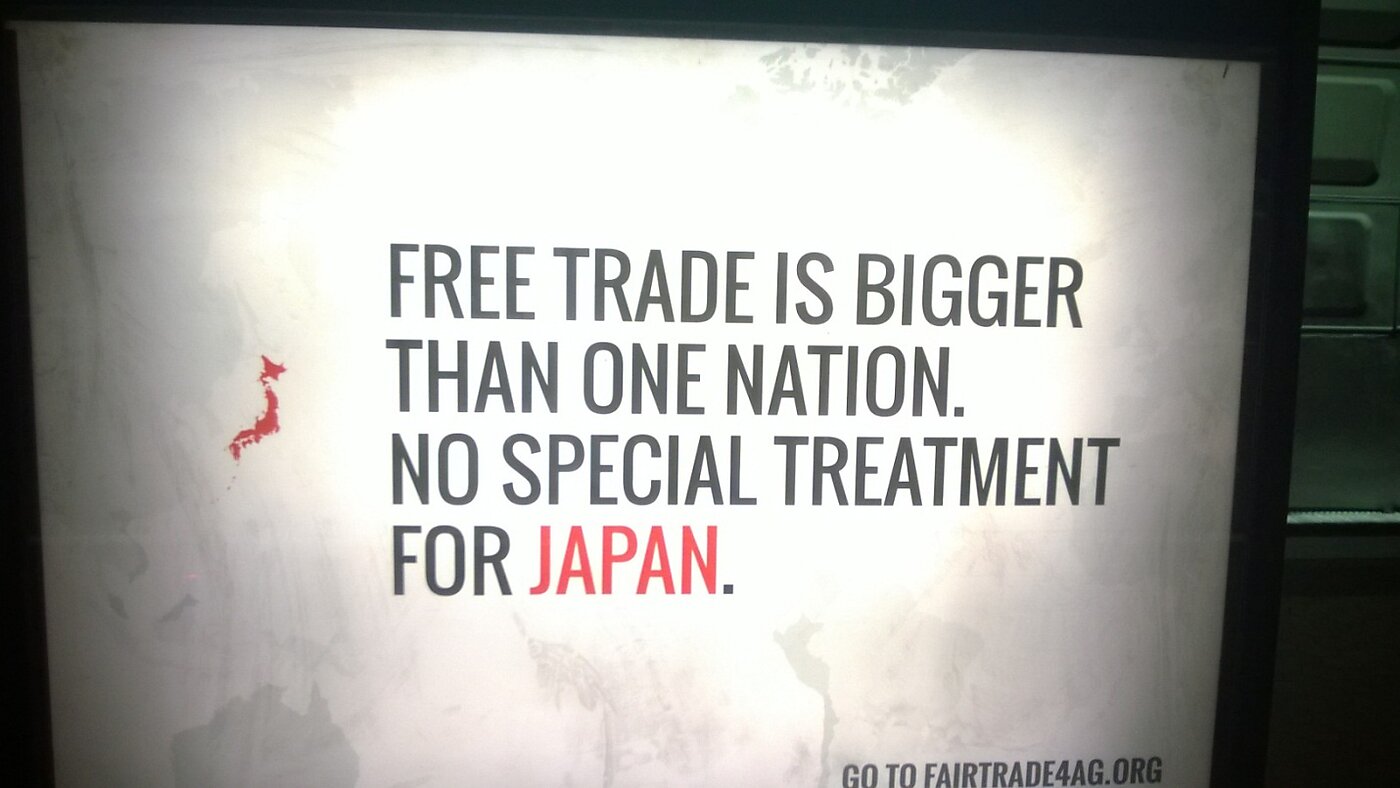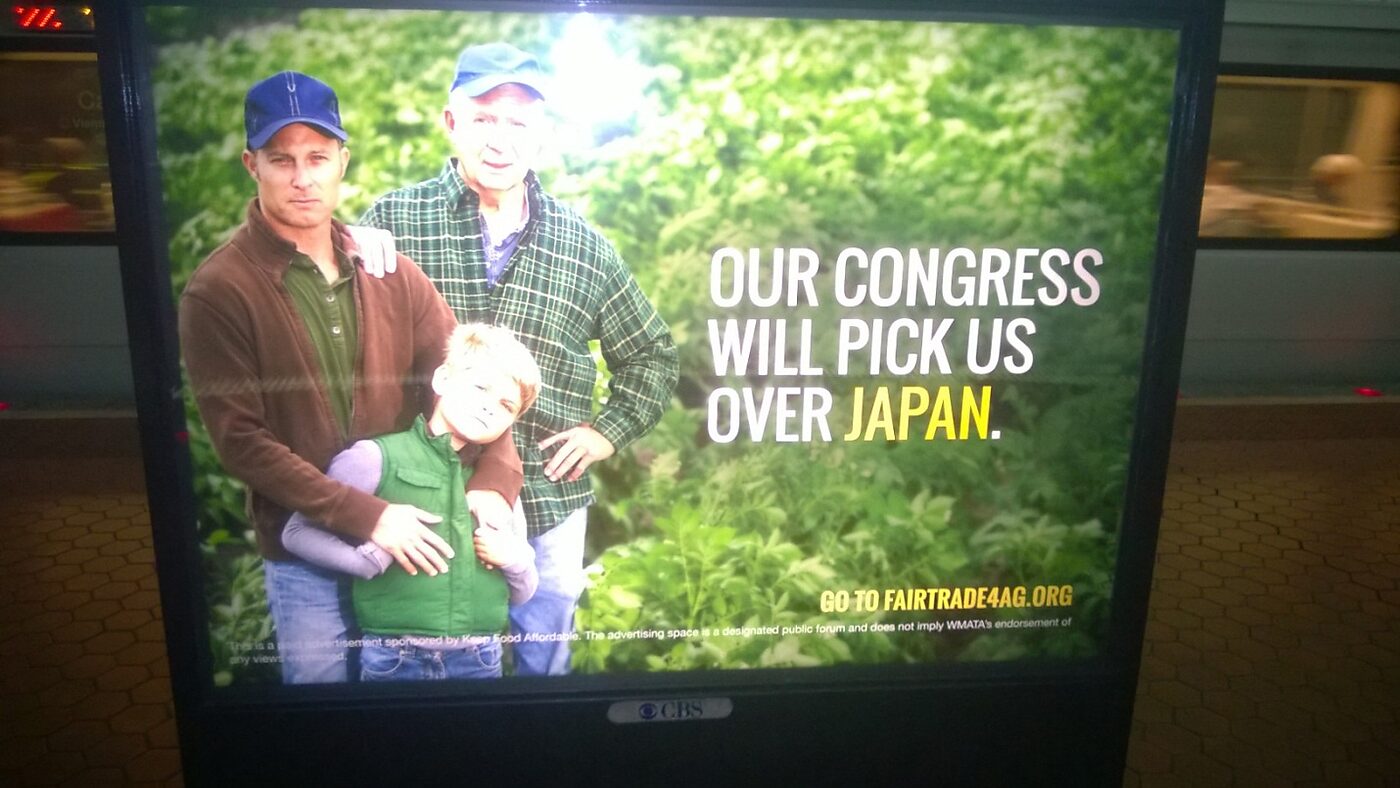Thanks to an ad campaign by a U.S. agriculture group, Washington, DC, commuters—especially those who work on Capitol Hill—have been learning about Japan and the Trans-Pacific Partnership. The agribusiness lobby group called “Keep Food Affordable” has covered one DC metro station with ads complaining about Japan’s effort to maintain some of its tariffs in the TPP negotiations.
It’s rare to see public advertising about trade policy. This is true even in the unique DC market where commuters encounter pitches for other strange things like fighter jets, tax reform, and museums dedicated to remembering genocide.
When trade policy does make it into advertising space, it’s almost always bad. Election campaigns and advocacy groups use emotionally charged language to push protectionist policies: ‘China is poisoning us,’ ‘international organizations are stealing our country,’ ‘small town life is fading,’ ‘baby seals are dying,’ etc.
A sad consequence of seeing trade as a battle between “us” and “them” is that trade policies are often sold to the public through a lens of jingoism and xenophobia. For example, the U.S. airline pilots union is campaigning against Norwegian Airlines by pointing out that it—shamelessly—hires employees from multiple countries. Numerous ads during the last election cycle accused opponents of doing things that benefited Chinese people, including one bizarrely racist commercial.
Unlike those ads, the campaign to end Japanese tariffs is pro-trade. Even if it is about foreign protectionism, it is still a call to reduce trade barriers and further the natural course of economic globalization.
Unfortunately, they fall into the same “us vs. them” rhetorical trap as the anti-trade campaigners. As with all agriculture related lobbying, the ads show wholesome, intergenerational, white Americans and allude to the values of family and hard work. They contrast that with “JAPAN”:
It’s worth noting that securing Japanese tariff reductions through the TPP will mean increased business opportunities, while failing to do so merely maintains the status quo—nothing is harming U.S. farmers here. Nevertheless, if you go to their website, you’ll be treated to this ominous image:
Perhaps this campaign will convince congressional staffers who ride the subway to work that Japanese tariff elimination is an important goal in the TPP negotiations, but it will do so at the expense of constructive rhetoric about trade policy.
The truth is that while lowering tariffs in Japan will help U.S. agribusiness, it will do a whole lot more to help the Japanese people. Japanese agriculture has much more political power than it has economic significance. Japan has a thoroughly modern economy and the average Japanese farmer is about 70 years old. High tariffs on rice, wheat, sugar, meat, and dairy imports keep food prices high. Because everyone eats, lowering these tariffs will decrease the cost of living for everyone in Japan, directly increasing their quality of life.
Free trade advocates don’t need to scare people with red-lettered warnings about Japanese farmers cheating the system and ruining American rural family life. On the contrary, there is real potential for civil society groups to work together across borders to advocate for the common interests of U.S. farmers and Japanese consumers. That’s the positive message about trade that Congress desperately needs to hear.
Thanks to Cato Institute trade policy intern Ethan Rutledge for the photos.



